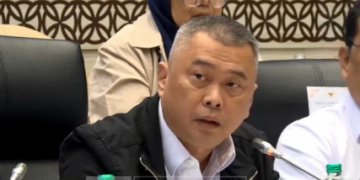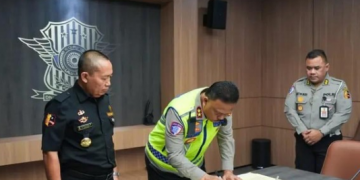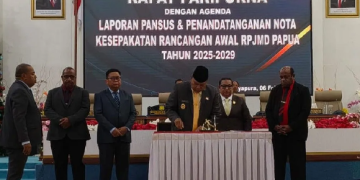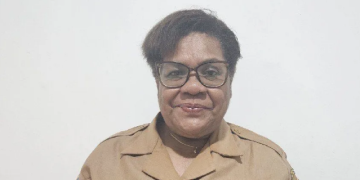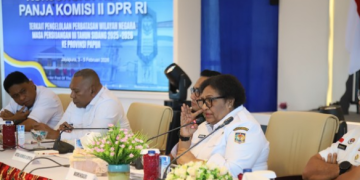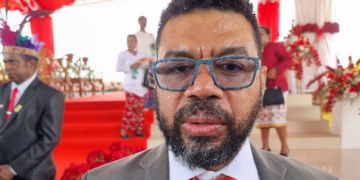PapuaAround.com – Anthonius Maturbong, an Associate Expert from the Papua Language Center, has revealed research findings indicating that four languages in Papua Land have faced extinction.
According to Maturbong, the four languages that have become extinct are the Tandia language in the Teluk Wondama region, the Air Matoa language in Kaimana, West Papua Province, as well as Mapia language in Supiori Regency, and Mawes language in Sarmi Regency.
The most concerning situation is the Air Matoa language in Kaimana. “This language is believed to have become extinct because when the research was conducted in 2010, only one speaker was found, who was elderly,” Maturbong said. This indicates that without active speakers, a language is at risk of extinction because there are no young generations capable of carrying it forward.
In addition to the four languages that have become extinct, Maturbong also expressed concern about the possibility of the extinction of other languages in Papua Land due to the declining number of speakers. “Even if there are still speakers, most of them are elderly,” he added.
In an effort to prevent the extinction of local languages in Papua Land, the Language Center is collaborating with local governments to promote the revitalization of local languages. One step taken is to incorporate the teaching of local languages into the education curriculum from early childhood education to high school. Maturbong also urged local governments to provide books that support the learning of local languages to make it easier for people to learn them.
“Local governments throughout Papua Land are also requested to actively create regulations to include local languages in the local curriculum and provide books that support the learning of local languages,” he said, hoping that these steps can increase the number of speakers of local languages in Papua Land.
Papua Land, which includes Papua Province, Papua Highlands, West Papua Province, South Papua, Central Papua, and Southwest Papua, is rich in language and cultural diversity. Therefore, preserving local languages is a collective responsibility to maintain the valuable cultural heritage for the Indonesian nation.
Read also: The Story of Nduga Regency’s Geographical Significance and Development Challenges
Source: Okezone.


